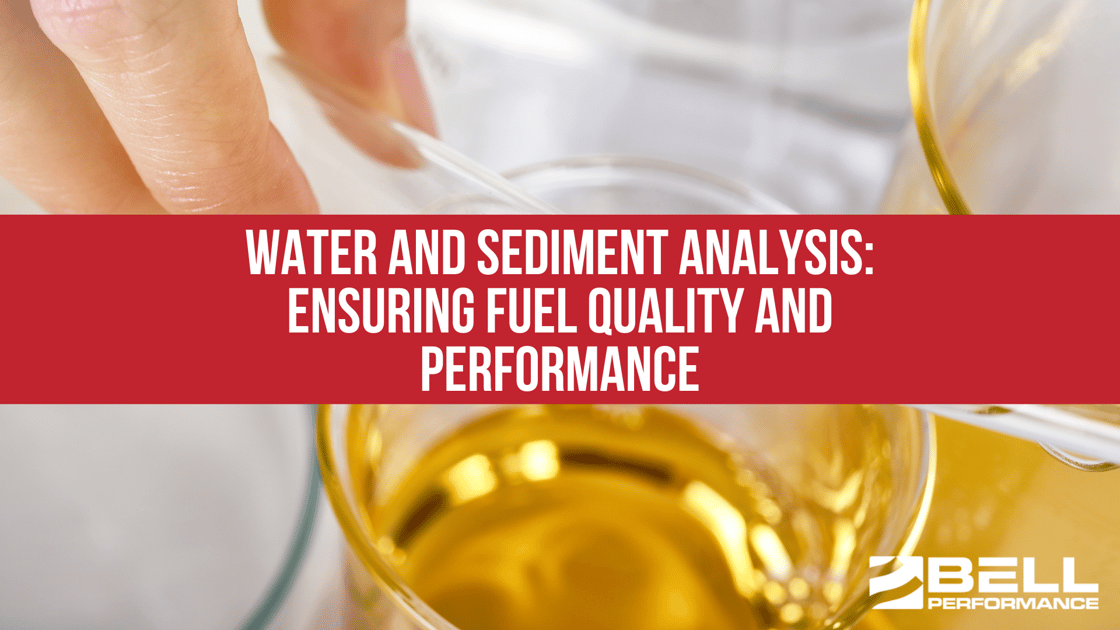Annual fuel testing is essential (but you don't have to do it all)
There are thousands of old storage tanks dotting the landscape across the nation with untold gallons of old fuel inside them. How many of them have...
2 min read
Erik Bjornstad : Jul 20 2023

The world of fuel management is more complex than ever, ensuring fuel quality is paramount to maintaining both the continued health and optimal performance of your vehicles, equipment, and machinery. Fuel testing plays a crucial role in this process; it's the step that helps us identify if our fuel meets the required specifications and identifies that it is free from impurities that could potentially cause damage.
In this podcast episode titled "Fuel Testing - Water and Sediment Analysis," host Erik Bjornstad dives into the significance of water and sediment testing for diesel fuel, its implications, and the necessary actions to maintain fuel integrity in case of a bad test result. Let's explore the key takeaways from this enlightening discussion.
The episode begins by emphasizing the importance of fuel testing and its role in verifying that fuel properties meet the required standards laid out in ASTM D975. Compliance with the ASTM D975 standard specification for diesel fuel oils is crucial to define diesel fuel legally.
D975 consists of 11 property tests that collectively define what diesel fuel is supposed to be like. Deviations from these specifications are signs that the fuel may not perform optimally and could cause engine or equipment issues.
This episode focuses on the water and sediment test known as ASTM D2709. This test measures the presence of free water and sediment through a centrifugation process. While any diesel fuel may contain dissolved water and suspended water, the water and sediment test specifically isolates and measures both the free water and any sediment present in the fuel sample.
When you have elevated water and sediment levels in fuel, it can be caused by several things. Water can enter the fuel through condensation, leaks, or inadvertent errors during storage and handling. Temperature fluctuations can also lead to the release of dissolved water, which then turns into free water. Sediment formation occurs over time as fuel reacts with environmental factors such as oxygen, light, heat, and microbial byproducts. As these natural changes in the fuel progress, they can result in failing water and sediment test results.
While immediate catastrophic effects are unlikely, using fuel with excess water and sediment can have gradual, chronic consequences. The primary areas of concern are filters and injectors, especially in modern common rail diesel engines.
Injectors, operating at high pressures, are highly sensitive to impurities in the fuel. Free water and sediment particles can cause injector damage, leading to costly repairs. Promptly monitoring and promptly addressing water and sediment levels are essential to mitigate these risks.
A two-step process is recommended to rectify a failing water and sediment test result. First, the mechanical removal of free water and sediment through fuel polishing or filtration is necessary. Specialized fuel polishers employ techniques to extract as much free water and sediment as possible, followed by adding a water-scavenging chemical to mop up any residual water. Filtering the fuel further should remove remaining sediment particles.
For the health of stored fuel prevention is key to avoiding future water and sediment issues. Regularly monitoring water levels in storage tanks allows for the timely removal of accumulated free water. Limiting water ingress through proper tank maintenance and spill prevention measures is vital. Additionally, using a fuel stabilizer, especially for long-term fuel storage, helps prevent sediment formation by neutralizing the chemical reactions responsible for sediment creation.
The podcast episode on fuel testing and water and sediment analysis is a valuable resource for anyone involved in fuel management. Understanding the significance of fuel testing, particularly the water and sediment test, helps ensure the quality and performance of the fuel.
By addressing failing test results through remediation techniques such as fuel polishing and filtration and implementing preventive measures like regular monitoring and the use of fuel stabilizers, fuel users can safeguard their engines and equipment from the damaging effects of impurities.
There are thousands of old storage tanks dotting the landscape across the nation with untold gallons of old fuel inside them. How many of them have...
Taking care of today's problematic stored fuels is best done with the three-pronged Hybrid Approach - the right chemicals, the right mechanical...
One thing that sets apart a good tank servicing or fuel polishing partner from a no-so-good one is their familiarity with fuel testing. The better...